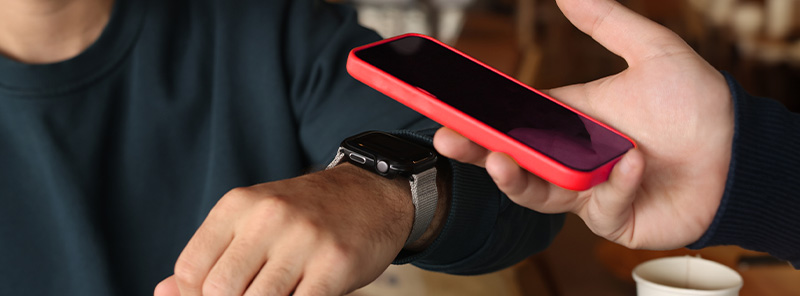Tap, scan or swipe: How to survive an almost-cashless society
Worried about bringing large amounts of cash and exchanging paper money when studying abroad? As an international student juggling studies and life, this should be the least of your concerns. Luckily, most businesses in major cities are well-equipped for cashless or electronic payments.
Whether you’re doing a grocery run, buying refreshments or treating yourself to some new clothes, you can get it done without the use of physical cash.
As we gradually move away from using paper notes and coins, you should know the options available to you and learn how to keep yourself safe using these financial tools.
The good old card
Debit and credit cards are some of the most secure and reliable alternatives for cash. These plastic cards make in-store and online purchases convenient. Debit cards allow you to deduct from the money you have deposited in your bank account, while credit cards allow you to borrow money from the card issuer up to a certain limit. You can also withdraw cash from both cards.
Using a debit card or direct debit for your purchases usually has no fees, but you may get charged with account maintenance fees or when you use it at another bank or financial institution.
On the other hand, credit cards charge a fee every year for using the card and accessing its perks. Apart from annual fees, credit card holders are also charged with interest if they fail to pay their bill in full each month. These interest rates can be high and put you on a spiraling debt, which is why it is important to only spend what you can afford to pay off. Although it is useful during financial emergencies and building a good credit score, you should use credit cards with care.
If you are planning to study in the UK and are interested in opening a bank account there, here’s a quick guide to help you.

One tap with payment apps
Apple Pay, Google Wallet and Samsung Pay are among the popular mobile payment apps used worldwide. These apps usually need a valid debit card to add money to your digital wallet account. Serving as “virtual cards,” these apps enable tap-and-go transactions through your smartphone or smartwatch.
Some digital wallets use your smartphone’s camera to scan QR codes that connect with a point-of-sale system during an in-store purchase. You can also easily split the bill with your friends by requesting or sending money through QR codes.
Get to know more about these top payment options in this video:
Apart from these global payment apps, there are other digital wallets to choose from if you are staying in the UK, the US or Australia. In the UK, some use Monzo, Revolut and PayPal. Online payment platforms such as Cash App, Venmo and Zelle are also widely used in the US. If you plan to stay in Australia, e-wallets such as Afterpay, Beem It and PayPal can help you get around.
Quick tips and reminders
With the rising popularity of cash-free payment systems, you may also become more vulnerable to cybersecurity attacks and fraudulent activities. Before you tap, here are some tips and reminders to protect yourself while using cashless payments:
- Always monitor your transactions. Turn on the notification of the app you’re using, as well as your email and SMS, to easily detect unauthorized transactions.
- Only download the digital wallet or mobile banking app from a trusted source.
- When using e-wallets, top up only the amount you need.
- Use secure networks for cashless payments. Don’t use public Wi-Fi when transacting online.
- Protect your card from fraud. Avoid sharing photos of your physical card as well as sensitive card details such as username and passwords, card number, account number, PIN and CVV/CVC code.
- Be cautious of phishing scams. Do not click on links or open attachments from suspicious emails. Report any fraudulent activities to authorities as soon as you spot them.
Now you’ve got all the information you need to begin your study abroad journey in an almost-cashless society. But will you choose the UK, US or Australia? Head to the INTO Study website to find out more.
You can follow us on Facebook, Twitter, Instagram, LinkedIn, YouTube and TikTok.



